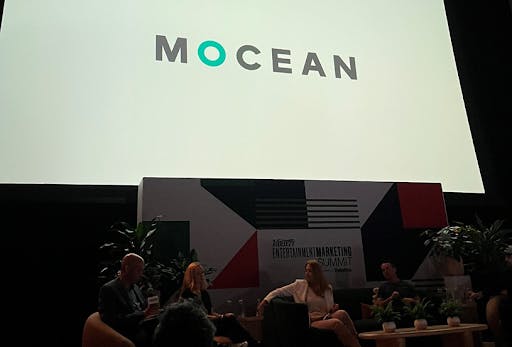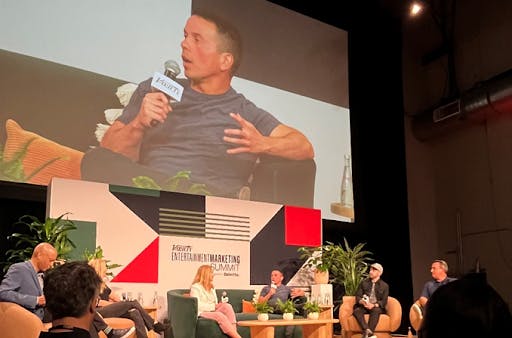
Diversity and Inclusion Matters, Creator Evolution, Brands Move to Entertainment Marketing, and New Complexities in Distribution
Last month, MOCEAN attended the Variety Entertainment Summit. Our EVP of Strategy, Allan Gungormez, spoke on a panel with esteemed entertainment professionals from Lionsgate, Google, Sony Pictures, Audacy, and Lionsgate. In addition to reconnecting in-person with colleagues, collaborators, and clients… we learned a few things!
Here are 4 major takeaways from entertainment’s premier marketing conference.
Diversity and Inclusion are Omnipresent Marketing Topics
Diversity and inclusion were brought up in just about every panel. YouTube talked about their efforts to promote understanding and awareness for black hairstyles which has been a pain point for black students and professionals. TikTok fielded questions on supporting transgender youth. Multiple execs noted the importance of hiring and supporting a diverse staff.
It is crucial that all voices be represented, and that the diversity of our world be reflected in every part of the advertising space. Beyond being the right thing to do, hiring with an eye towards inclusion is good for business. Widening your customer base requires a staff that understands the needs of its diverse audience. It’s not just a nice-to-have anymore. It’s a must-have for modern brands.
Marketers Evolve on Creators and Influencers
A notable pivot in the conference was the interesting line marketers are drawing between a creator and influencer. Previously, marketers had used the term influencer as a catchall for digital personalities. Now, execs at FOX, NBC, TikTok, and YouTube distinguish between the two. The difference: an influencer is a digital persona that uses their audience for commercial purposes while a creator can be thought of as a mini-business or channel with a community, specific content, and consistent creation.
This distinction translated into a couple interesting campaigns from brands. Minecraft spoke about a recent initiative to empower their players to be creators in order to build content and community surrounding their game. The brand provided players tools and access, and as a result, their community now boasts over 300 creators with 45 of them having earned over a million dollars in rev sharing. At Fox Entertainment, they used food content creators on TikTok to create food challenges to promote their new show Next Level Chef. The entertainment brand worked with creators whose channels were specific to food content so the show promotion felt natural and endemic to each creator/partner.
Brand Marketing Takes a Page from Entertainment
Entertainment brands have long known how to drive engagement, develop fandom, and build consumer loyalty. Consumer brands are taking note and adopting some long-held entertainment practices.

Sony and Lionsgate discussed how consumers expect instant gratification. Providing a hook to audiences in your brand creative - which traditional entertainment has always done - is a novel way for brand marketers to capture attention.
Brands need to embrace this modern approach when entering the feeds and streams of consumers today. What value can you immediately provide to your consumer through your marketing and advertising? Information? Entertainment? Empathy? Clarifying this will be key to future brand success.
Marketing Has Gotten More Complicated
More channels, dispersed audiences, demanding consumers, new tech, more competition. Everyone, on every panel, agreed that marketing has become more complicated. The President of Hulu discussed how TV and content have become ‘geoless’. America is no longer the arbiter of worldwide pop-culture. He discussed introducing new content globally based on popularity instead of simply readapting or remaking shows for specific audiences.
Studio execs from Sony, Amazon, and Universal discussed how hard measurement has become for releasing new titles, especially indie titles. The proliferation of channels and consumer options has made new movie releases harder to control and track. Careful planning and audience feedback, even before the movie is released, have become essential. In addition, the evolving movie release window has flipped the script on content distribution, adding complexity to what was once a straight forward model.
On a brighter note, and despite the complexity, there’s more consumption than ever before. Consumers are hungry for new, diverse, and different stories, and we as an entertainment community are better poised than ever to capitalize on this new wave of evolving consumer preference. All brands need skilled navigators to chart their course. To our brands and entertainment clients, we are reporting for duty.